Lookup Spreadsheet Row
Our GoogleSheet Lookup action, allows you to lookup data within your Google Sheets documents, providing you with a powerful tool for managing your data workflows.
Using our system, you can easily lookup any row in your sheet, and use the custom values associated with that row within your workflow.
This functionality allows you to automate complex data management processes, such as cross-referencing data from multiple sheets or databases.
By leveraging the power of our workflow system, you can reduce errors, increase efficiency, and save time, all while ensuring the accuracy and completeness of your data.
With our lookup functionality, you can easily integrate your Google Sheets documents into your workflow processes, creating powerful data management workflows that help you to drive better outcomes.
Choose a worksheet:
Select a worksheet within your spreadsheet that you wish to use for Looking up and retrieving data.
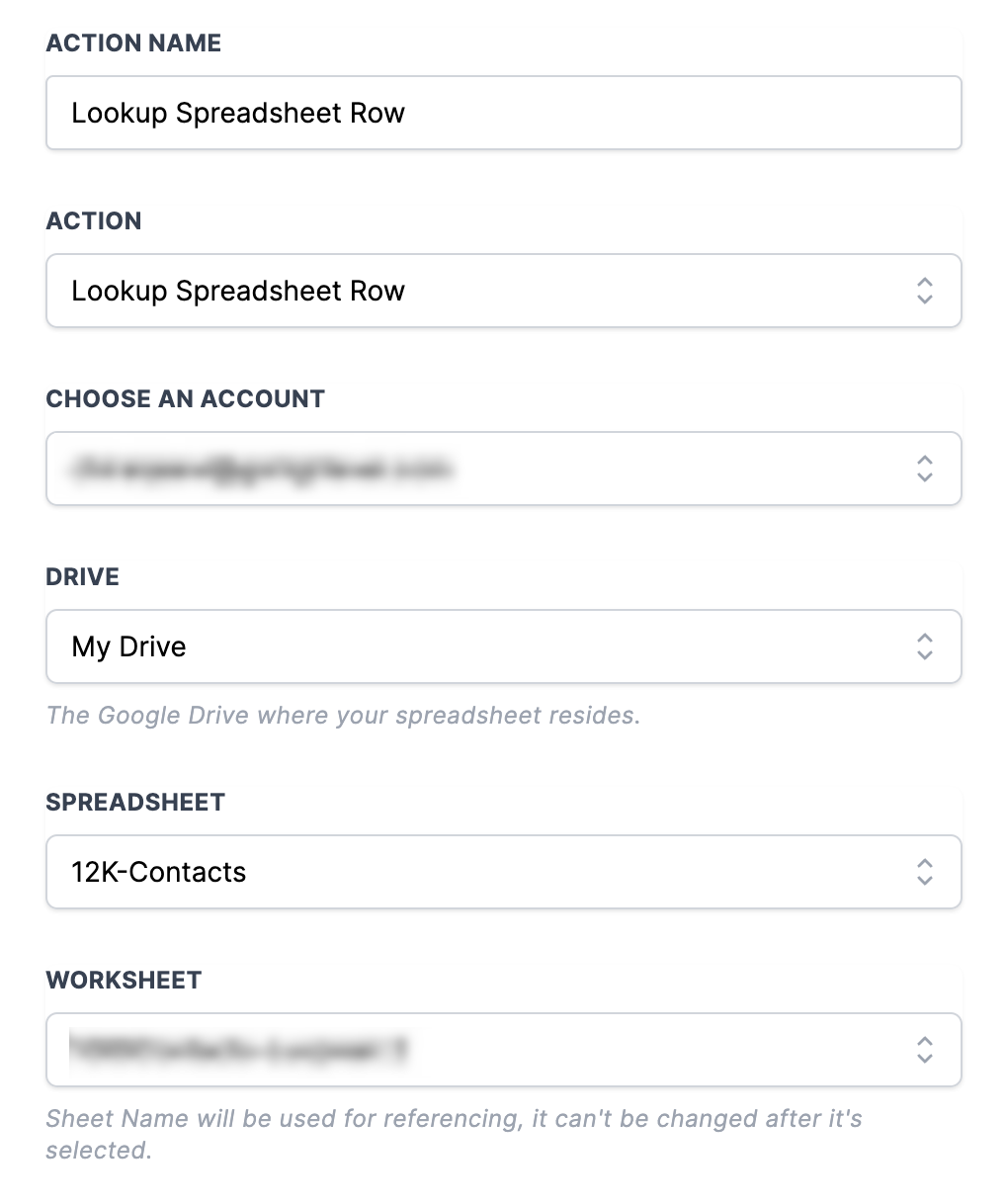
Google Sheets : Create Spreadsheet Row contains additional information on how to select an account, drive, spreadsheet, and worksheet. Please refer to that document for further details.
Create Spreadsheet RowSelect a Column and Lookup Value to find the matching row
The first row is considered as Headers and the same is shown as labels for each columns. You can fetch the latest headers from the sheet by clicking “Refresh Headers”.
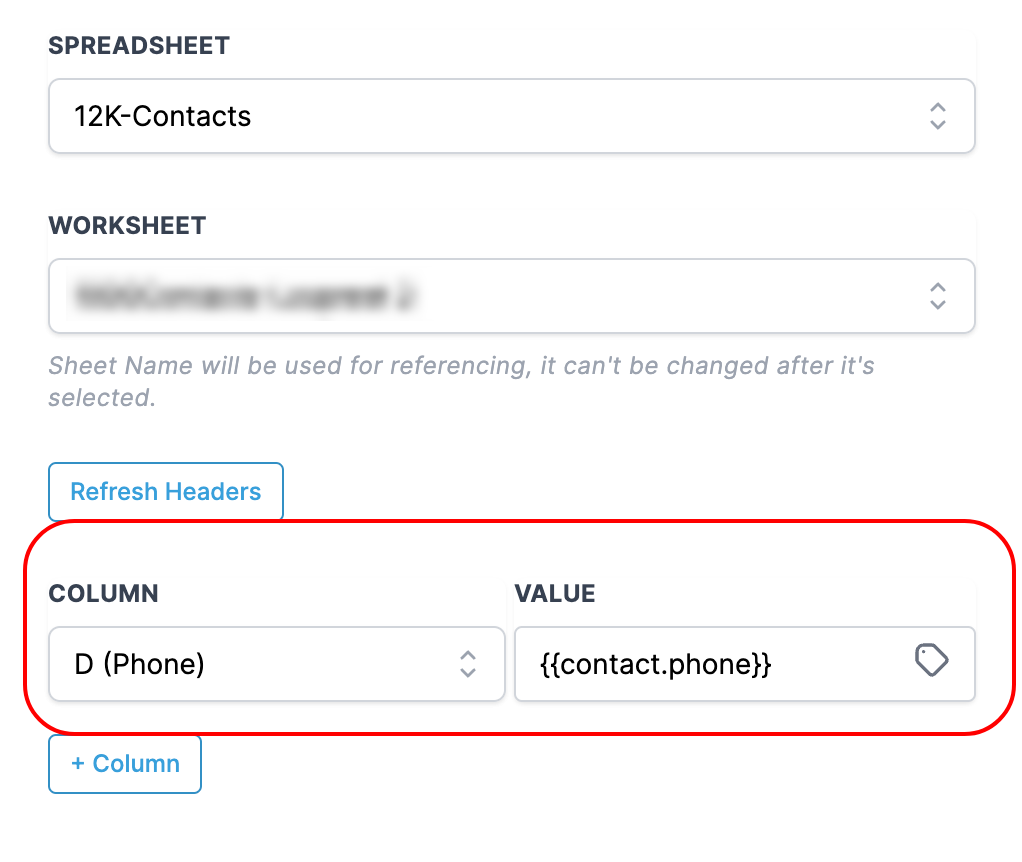
Select an extra Column and Lookup Value
If an extra column is added, then both the column’s value should match to determine the matching row
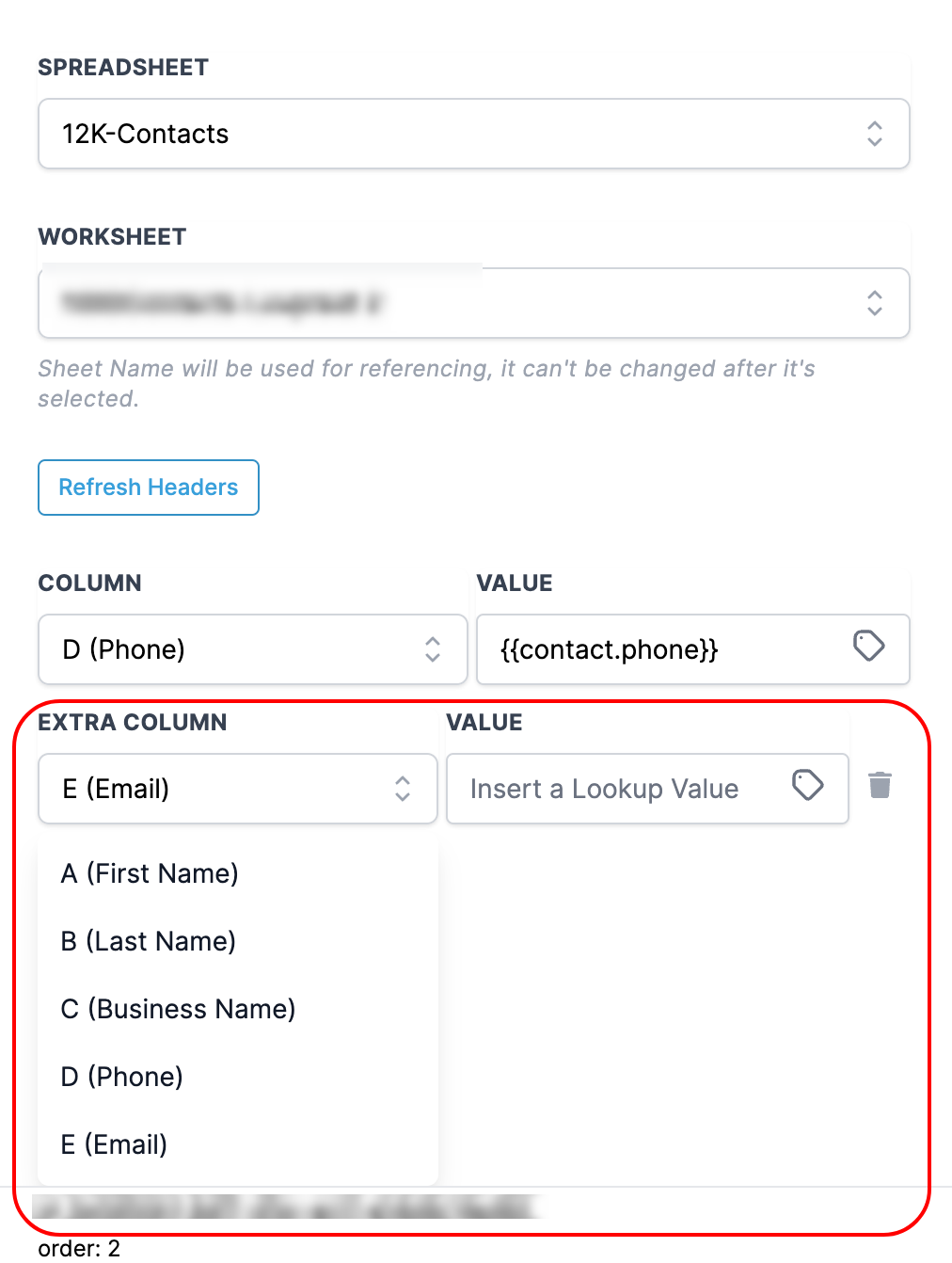
Now you will be able to use the lookup data within the workflow for Google Sheets : Update Spreadsheet Row using Lookup, Google Sheets : Delete Spreadsheet Row using Lookup and also as custom values.
Update Spreadsheet Row using LookupDelete Spreadsheet Row using LookupUsing as Custom Variables:
One of the advantages of using lookup is that when you search for a particular row, all of its data can be saved as a custom value that can be utilised throughout your entire workflow.
Consider the following worksheet as an example. If you need to search for a specific row, you can enter the contact phone number or email address in the lookup section. Once the lookup function finds the matching row, it will store all the values under the corresponding header name as custom variables.

When you add a Lookup action, an index is automatically generated. This index is essential for mapping the row data to the custom variables and allows for easy identification of multiple lookup values. It is not possible to remove or edit the index once it is added.

The values obtained from the lookup action for a particular row can be used in all other actions within your workflows, just like any other contact fields or custom variables.
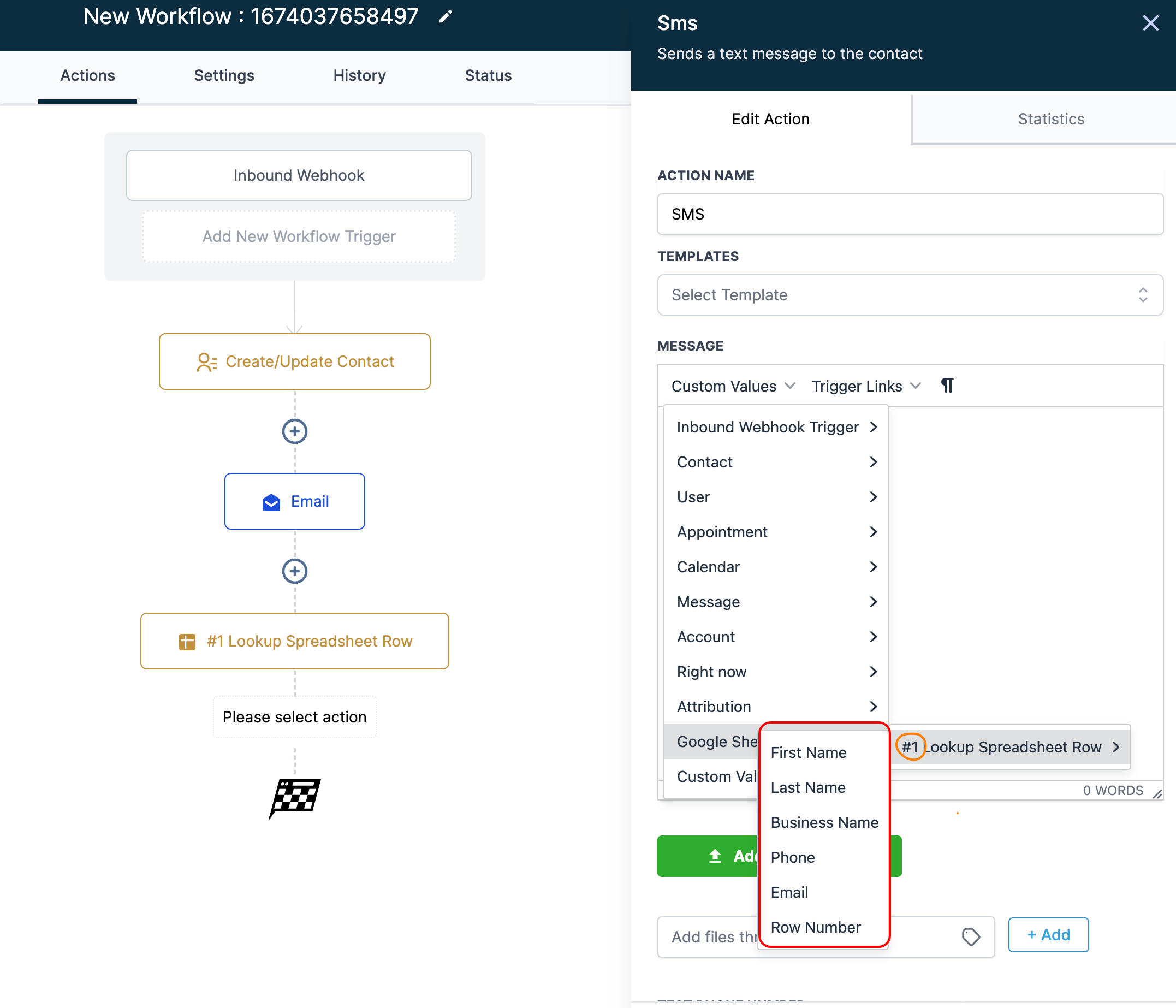
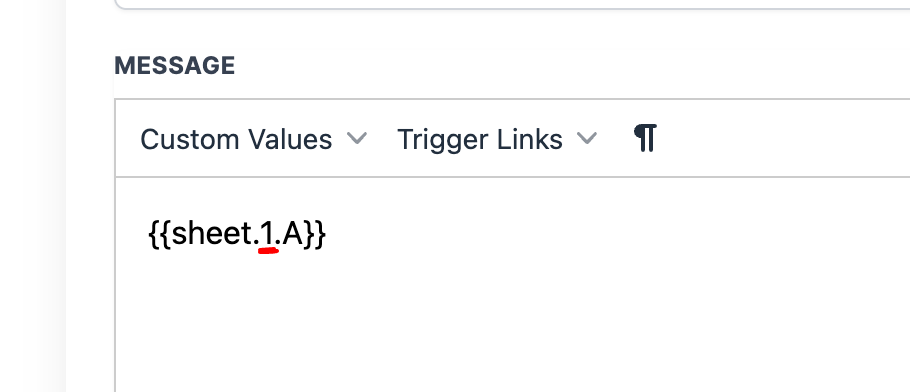
As previously mentioned, the index generated by the lookup function serves as a reference and is used for internal mapping of the custom variables in lookup actions.
To get the row number of lookup value you can use {{sheet.x.rowNumber}}.
Here x is the index of the lookup action.
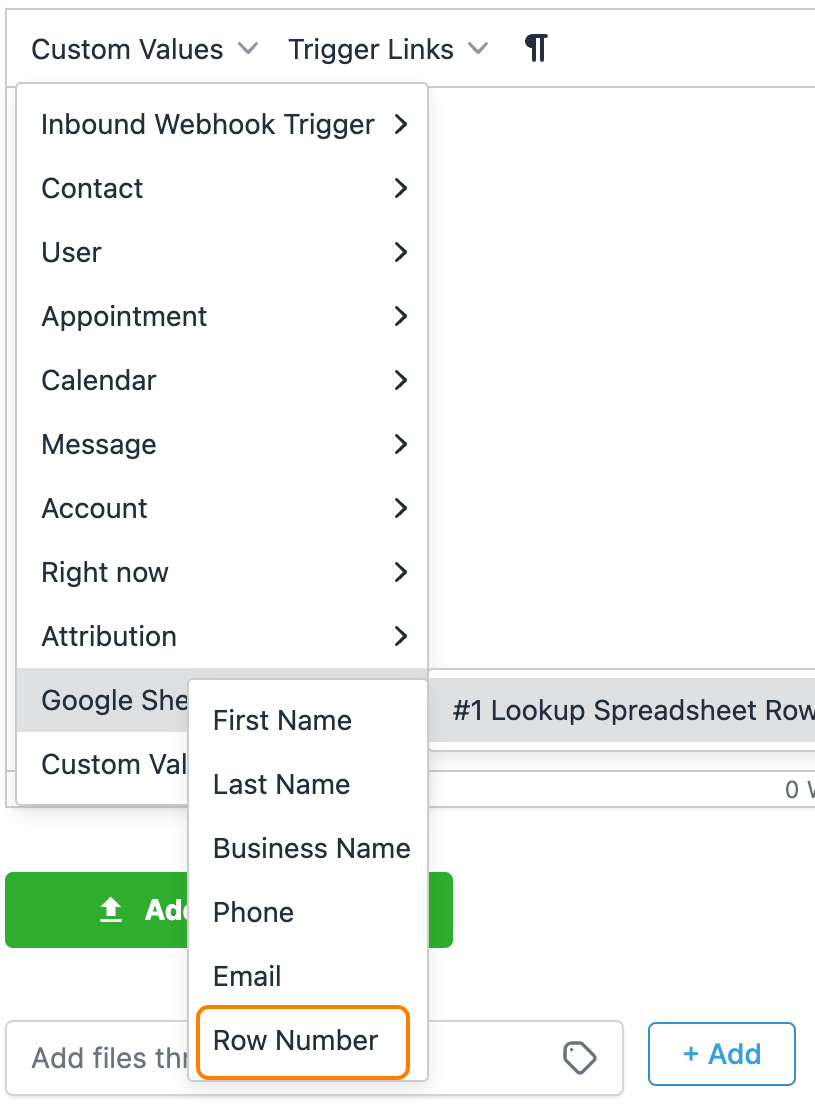
Example:
The custom values of LookedUp Row can be utilised in all of the actions within your workflow. Some examples of how to do this are provided below.
In Communication Actions:
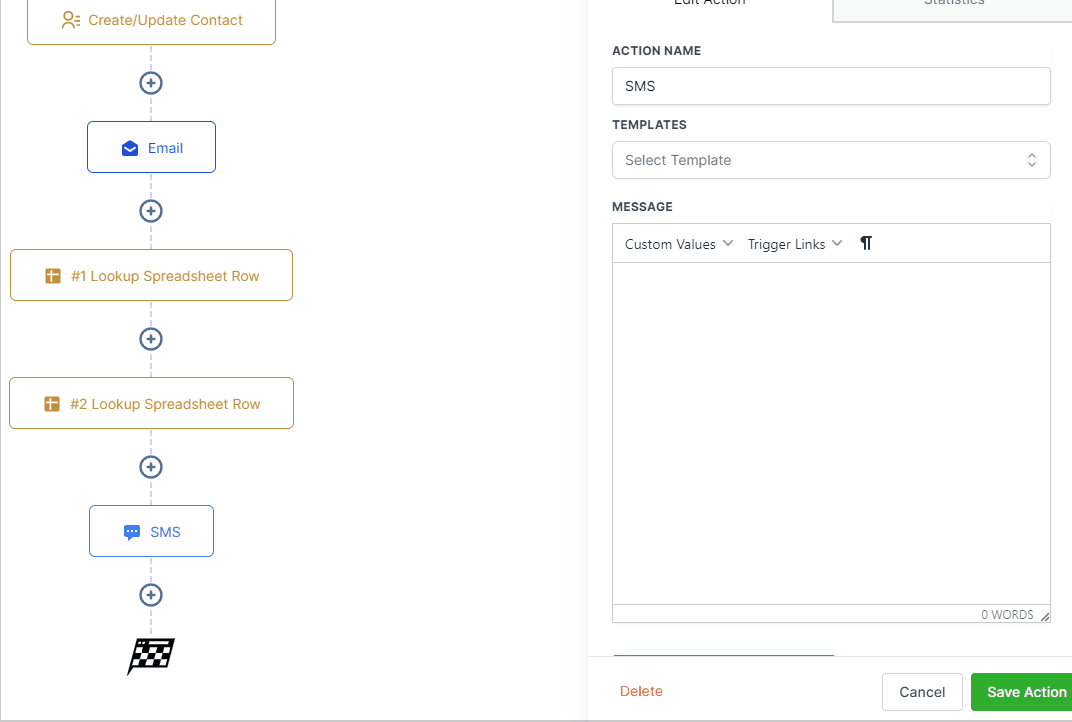
In If/Else:
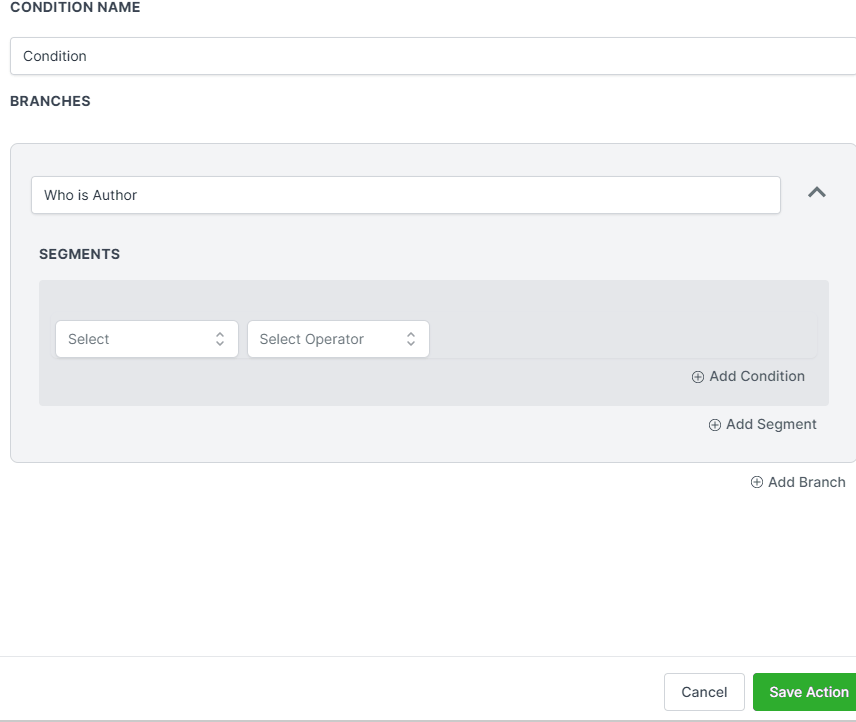
Important points to remember:
If the Google Sheets Lookup Action is unable to find a matching row, all subsequent Google Sheets Actions that reference this Lookup Action will be skipped due to lack of a result. Therefore, keep this in mind when building workflows that include this Lookup Action and the Google Sheets : Update Spreadsheet Row using Lookup or Google Sheets : Delete Spreadsheet Row using Lookup
When searching for a match, the Google Sheets Lookup Action is case sensitive and white-space sensitive. So make sure to provide the correct casing and only including spaces when it’s required.
Since the Lookup Action results are available for If/Else Conditions you can be using those to decide whether to Google Sheets : Create Spreadsheet Row or Google Sheets : Update Spreadsheet Row using Lookup, based on the Condition of having a Lookup Result or not.
Last updated
Was this helpful?